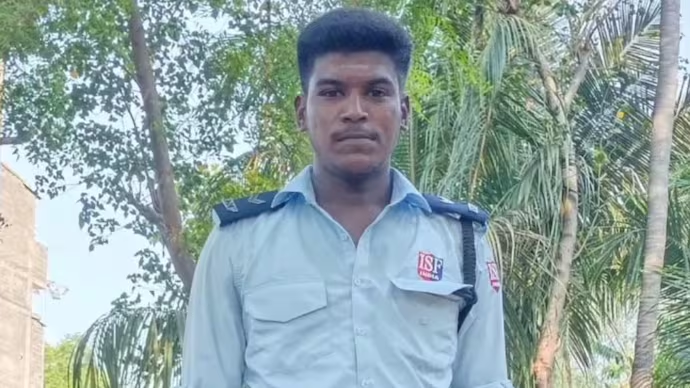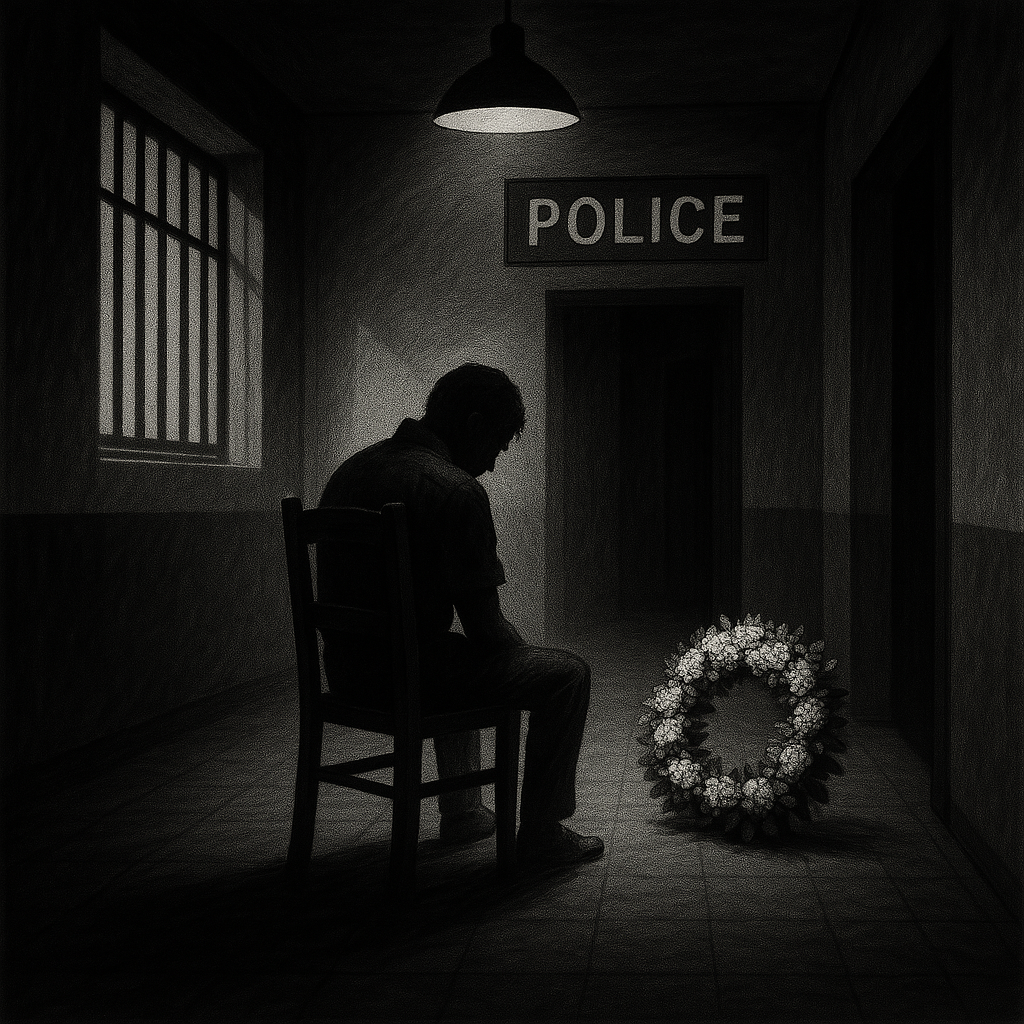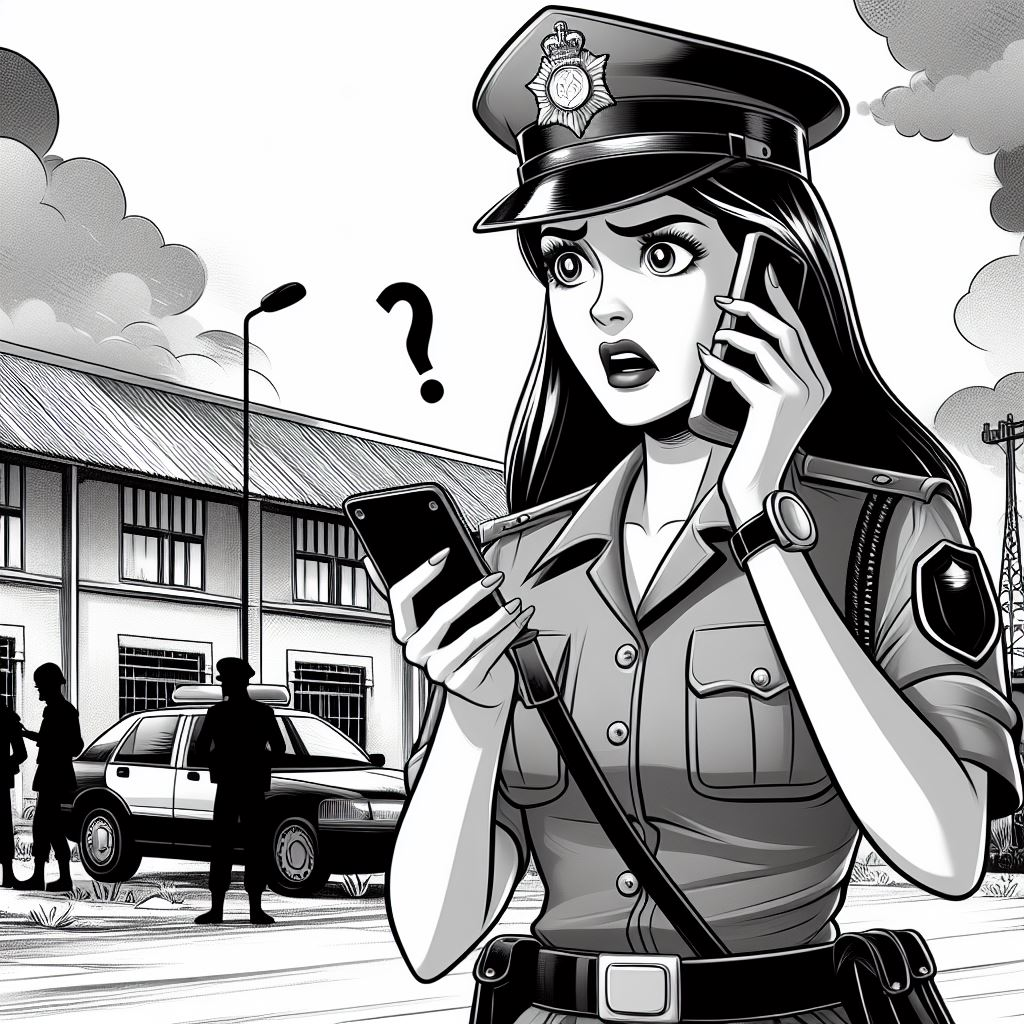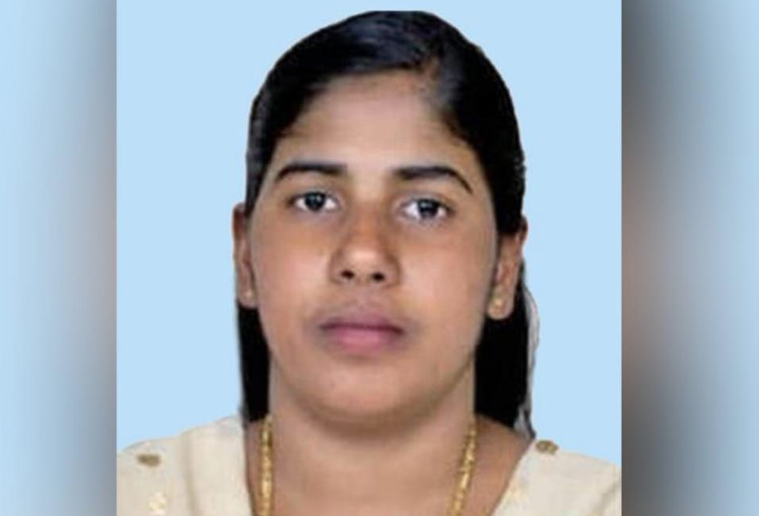In yet another serious allegation of custodial torture leading to death against the Tamil Nadu police, a 27-year-old temple security guard from Sivagangai district died after being taken into police custody for questioning in a jewelry theft case.
The deceased Ajith Kumar was initially detained on June 27 for questioning regarding 10 sovereigns of gold jewelry missing from a car at the Madapuram Badrakaliamman Temple, where he worked. He had reportedly helped park the car, according to the police. Initially released after questioning, he was picked up again by a special police team the following day for further interrogation.
The complaint that led to Ajith Kumar’s detention was filed by two women, Sivakami and her daughter Nikita. They alleged that 10 sovereigns (approximately 80 grams) of gold jewelry were missing from their car. This occurred after they had asked Ajith Kumar to park their vehicle at the Madapuram Badrakaliamman Temple, where he worked as a security guard.
According to the police, Ajith Kumar did not know how to drive, so he sought help from another person to park the car and later returned the keys to Nikita. The First Information Report (FIR) in the case, based on a statement from Head Constable Kannan (one of the arrested officers), indicates that the Inspector of Thiruppuvanam and the Deputy Superintendent of Police had instructed officers to obtain a clear account from Ajith regarding the stolen jewelry. The police claim that Ajith initially named several individuals before allegedly confessing to the theft and leading them to a cowshed where he stated the items were hidden. The FIR further states that during the search, Ajith Kumar supposedly attempted to flee, slipped, and fell while removing an asbestos sheet. Head Constable Kannan claimed he then left the location with other suspects to hand them over to their families, leaving Ajith in the custody of four other officers.
Police claim that during the investigation, Ajith Kumar led them to a cowshed where the stolen items were believed to be hidden. They also stated that he attempted to escape twice, suffering an epileptic episode during the second attempt. He was then taken to Thiruppuvanam Hospital and later referred to Sivagangai Government Hospital, where he was declared brought dead on June 28 at 11:45 am.

However, an autopsy report raised serious doubts about the police account, revealing at least 18 to 40 injuries across Ajith Kumar’s body, including wounds on his limbs, head, back, ribs, and dried blood around his ears. Some reports indicate lathi blows near his anus and head injuries. A video has also surfaced, reportedly showing Ajith Kumar being beaten with a lathi by police personnel while in custody. His brother, Naveen, stated that CCTV footage showed Ajith walking unaided when taken in, but unable to stand and bleeding when brought out. Evidence presented in court suggested he was tortured with plastic pipes and iron rods.
Five police officers have been arrested and sent to judicial custody until July 15 in connection with Ajith Kumar’s death. They include head constable Kannan (Pazhayanur Police Station), head constable Prabhu (Manamadurai Police Station), Grade I Constable Raja (Poovandi PS), Grade I Constable Anand (Sivaganga Traffic Police), and Sankaramanikandan (Tiruppuvanam PS). A sixth policeman, Ramachandran, a driver, has been suspended but not arrested. Six policemen were initially suspended on the day of the incident.
The case has been transferred to the Crime Branch Criminal Investigation Department (CB-CID). The Superintendent of Police for Sivagangai, Ashish Rawat, was transferred and replaced by G Chandeesh. The Madras High Court has observed that the case should be treated with utmost seriousness, and a judicial inquiry is underway. The arrested officers have been booked under Section 196(2)(a) (custodial death) of the Bharatiya Nagarik Suraksha Sanhita (BNSS) Act, and murder charges have also been included.
Over 20 custodial deaths in recent past
Custodial deaths remain a significant concern across India, especially Tamil Nadu. While precise, real-time figures for the last five years can be challenging to obtain due to ongoing investigations and reporting lags, here’s an overview based on available information:
According to data shared in the Rajya Sabha, Tamil Nadu reported 40 custodial deaths between April 1, 2017, and March 31, 2022. This places Tamil Nadu among the states with a higher number of such incidents, following Gujarat (80), Maharashtra (76), and Uttar Pradesh (41) during the same period.
The opposition in Tamil Nadu has claimed that there have been 24 deaths in police custody since the Dravida Munnetra Kazhagam (DMK) formed the government in 2021. One report also states that since 2022, 24 custodial deaths have occurred in Tamil Nadu as a direct result of police torture. It’s important to distinguish between deaths in police custody and judicial custody. While both are “custodial deaths,” the former refers to deaths that occur while a person is in police detention, and the latter refers to deaths in prison or judicial lock-up. The data mentioned above generally refers to deaths in police custody.
Actions taken against police personnel involved in custodial deaths in Tamil Nadu vary depending on the specifics of each case, but generally include:
Suspension: Immediate suspension of police personnel involved is a common first step. For instance, in the recent Sivagangai case, six police personnel were suspended on the day of the incident.
Arrest and Criminal Charges: Following investigations, especially after post-mortem reports confirm foul play, police personnel can be arrested and face criminal charges. In the Sivagangai case, five policemen were arrested and murder charges were invoked against them.
Judicial Inquiry: Judicial inquiries are often ordered to investigate the circumstances surrounding custodial deaths. This is the case in the Sivagangai incident.
Transfer of Officials: Senior officials, such as Superintendents of Police, may be transferred from their posts. The Sivagangai SP, Ashish Rawat, was transferred following the recent death.
CB-CID Investigation: Cases are often transferred to specialized investigative agencies like the Crime Branch Criminal Investigation Department (CB-CID) for independent and thorough investigation. The Sivagangai case has been transferred to the CB-CID.
Compensation: In some cases, courts have ordered compensation to the families of victims of custodial deaths.
Lack of Convictions: Despite numerous deaths, there have been concerns about the lack of arrests or convictions in Tamil Nadu for custodial deaths in recent years.
Some of the notable cases of custodial deaths in the state include:
Sathankulam Custodial Deaths (2020): This high-profile case involved the deaths of P. Jeyaraj and his son Bennicks, who were allegedly tortured in police custody for keeping their shop open past curfew. This case brought significant national attention to the issue of police brutality and led to arrests and charges against the involved police personnel.
Chengalpattu Juvenile Home (2023):
Among the 24 deaths since 2022, a particularly disturbing case involved a 17-year-old in the Chengalpattu juvenile home in 2023. This minor, arrested for a petty offense, allegedly endured unimaginable abuse, resulting in 96 injury marks on his body, including severe contusions and abrasions, as recorded in his post-mortem report.
In April 2024 alone, four alleged custodial deaths were reported within 12 days. These involved G. Karthik from Madurai, K. Raja from Villupuram, S. Santhakumar from Chennais, and S. Jayakumar from Virudhunagar.
Reports indicate that police brutality and systemic torture remain a problem in Tamil Nadu. There have been instances where individuals entered prisons with broken limbs, with police attributing these injuries to “slippery toilets.”
Despite Supreme Court mandates for CCTV cameras in police stations, implementation has been slow, hindering accountability. The Tamil Nadu government has stated that it takes firm action in custodial death cases and that those involved do not get away. However, opposition parties continue to criticize the government over the number of such incidents.



